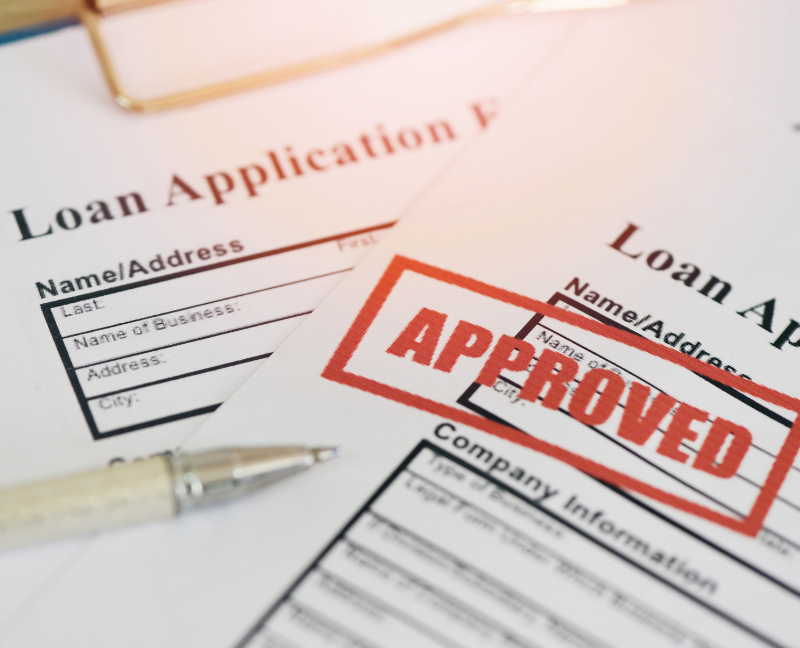We are always looking for ways to make our home look good, may it be inside the house or an outside improvement. While expensive upgrades are one of the best ways to go, being practical with something simple can do as much. Depending on your home improvement, it can add value to your home, like a landscaping project on your front or a minor kitchen remodeling.
Even adding a fence to your backyard can increase the value of your home. It might sound like a simple improvement but doing so boosts your home's worth.
But before you install a fence on your property, here are a few factors to consider:
Understand You Goal
Although installing a fence may seem easy, installing it the right way is important. Fencing may not be always right for every home, but with the right design, research, and functionality, it adds up to the total value of your home.
Putting a fence on your home adds privacy to your property. You don’t want everybody to see every event or occasion happening in your home. It also creates a border, dictating where your property ends and someone else’s begins. Plus, it adds an aesthetic look and protection to your home.
Meanwhile, if you live in an area with wildlife, fences could help you keep safe. It gives your home a sense of added protection from wildlife, trespassers, and strangers wandering onto your property. Same if you have pets and children around, it will keep them safe from running on the streets while they play.
Knowing why you need a fence can help you find the fence you need. After doing so, you can now estimate the budget you’ll be needing and get ready to start. However, you must understand any potential rules about the type of fences that can be installed. Ask your neighbor or the homeowners association about the rules and guidelines for putting up a fence.
Constructing a fence isn’t cheap. Its costs include the length of your fence perimeter, any necessary permits needed from your city, and the type of material you’ll be using.
Here are some options for the type of fences you can consider.
Some real estate agents' top picks are classic wood and vinyl with plastic white picket fences being the most popular due to maintenance. Many white picket fences are vinyl that doesn’t require maintenance aside from the occasional hose down.
Location and climate can also create an impact on your decision in choosing a fence. Depending on your location, your fence should be able to take heavy rain, wind, and snow. While aluminum looks similar to wrought iron and doesn’t rust, it does corrode and is not quite as durable.
Research
Doing research ahead of time and taking options will help you decide what type of fence you will get that will protect your house and your family for the years to come. Deciding which fence you’ll go for will give your home the best return on investment.
Things You Need To Do Before Installation
Before everything else, it is important to know your property’s boundaries. Building a fence in the wrong location can cause issues. You can call a surveyor to get the right measurement of your property. You can also look at the map of your plot of land and boundaries if you have it.
Hiring A Fence Installer You Can Trust
If you have the budget, hire a professional for your fence job. A professional can help you install your fence easily and ensure that the fence to be installed is sturdy, durable, and provides the curb appeal you’re seeking.
Searching for reviews and references is also important when you look for a fence installer. You don’t want to have your money go to waste, right? Look for their previous experience related to your unique fencing needs and be sure to meet and interview them.

Enhanced Appeal
Fence installation can help make your home look more expensive and tidier. It can also add an overall appeal to your home. It shows your home and your property border. A fence can also contain a clear and precise look between your property and that of your neighbors. Going for a fence is just one way to increase home value. It is also a very practical addition to your investment property.
If you're looking for more ways to improve your home without spending so much, you may visit our website today!
If you're borrowing a loan whether to buy a house, car, or other purpose, having a good credit score is a must.
Having an excellent credit rating helps not only with the lender's decision; it also gives you access to better interest rates and repayment terms. Getting good credit scores also unlocks access to the best rewards like a credit card that offers cash back, luxury benefits, and travel perks.
Your credit score is determined by the lender using several factors, such as your new and current credit, payment history, the amount owed, etc.
Credit scores range from:
On the other hand, there's a bad credit rating. A bad credit score is usually a result of missing out on payments like your monthly bills, loans, or credit card. So basically, a poor credit remark is when you have a lower-than-average credit score, and it can have a big impact when you try to apply for new credit.
When borrowing a loan, lenders will want to know your "creditworthiness," and they do this by checking information through your credit report. They will know if you’ve paid your loans on time, how you treated your past debts, and your existing loans (if there are any), which can indicate how you will likely pay the new debt.
Having a low credit score often means having a lower chance of getting the lender's approval; however, there are loan providers who might still let you get the loan but at the expense of getting higher interest rates since your credit score represents a higher risk.

Low credit scores, which range from 300 to 579, have a great impact on your chances of applying for credit, influencing the type of loan and products you’ll be approved for. It will also have an overall impact on your financial life.
Fair credit scores, which range from 580 to 669, could also hurt your chances of getting approved for loans. And if ever approved, you're most likely to get less favorable loan terms, such as high-interest rates or annual fees compared to those who have good credit scores and limited card choices.
Getting a poor or fair credit score makes it difficult to accomplish your goals because having low scores reduces your chance for a loan and less likely to have financial assistance. You should take action as soon as you can and work to have good credit. Pay on time, limit yourself from getting unnecessary things you won’t be needing and if possible don’t go all out with your credit limit. By doing so, you're increasing your chance of getting approved.
Private loan providers or banks will use your credit score to determine if you will be offered a credit card, mortgage, vehicle loan, or other credit products. This also helps them determine the interest rate and the credit limit you receive based on your capability to pay.
Excellent means extremely good. It is the highest tier of credit score you can have. Many of the best lenders or credit card companies require you to have good or excellent credit. If you want to benefit from annual statement credits, luxury and travel perks, and many more, you’ll need to have at least good credit. Meanwhile, if you have an excellent credit score, you can maximize approval odds and have a high chance to get the loan.
However, having an excellent credit score doesn’t guarantee you’ll get approved. Aside from having an excellent credit rating, there are also some factors to look for, such as your income, monthly payments, and financial picture.
Your credit score is more than just a number. It can have a big impact on your life. That's why you should take simple steps to avoid getting poor credit remarks. If you want to know your status or where you stand, some credit bureaus can help you check your score regularly.
To learn more about credit ratings or mortgages, feel free to visit our website or leave a comment below.
It’s no secret that real estate is considered a promising investment by many. After all, it has long been proven to be one of the ways to become wealthy. However, it doesn’t come with a map, and going for it alone can be risky and challenging. Luckily, there are ways that you can do to put yourself on the right track and be successful.
Nonetheless, encountering someone afraid of real estate investing is common. Some people believe that if they risk putting their money into real estate, there would be nothing left. On top of this, the negative thought is that it cannot succeed without investing large amounts of its own money. However, it is not true. Regardless of the market, one of the excellent ways to make money and build your wealth is still through real estate.
Some of the ways include:
Markets that are down may be the most fertile of opportunities. For a person to become successful in this field, they must possess courage, strength, and risk. Being creative and adaptable to change also helps in making your real estate journey a success.
It’s because the risk is minimized by the length of time you hold onto your property. When the economy is good, so is the market and your property. While certain universities offer general coursework and programs that will benefit the real estate investor, searching and listening to real estate investors' success stories can also help you. Not only will you learn tips on how to invest in real estate successfully, but you can also know their perspective by thinking like a pro!
Below are a few tips to get started:
The ability to see creative financing is always critical, especially in today’s market where everything is going up. However, the perspective of the most successful real estate investors might help and that is to always see opportunities everywhere.
It is common for investors to invest in properties that will generate a lot of profit or can multiply their initial investment. Studying and considering your education will help you in the long run. Making a strategy correctly can make a great return on investment.
Before entering into this investment you should always go for different options. Never invest in something that you are unsure of. Knowing and understanding what you are doing is the key to being successful in this business.

Knowing your local market and what is going on in it is important. Always avoid hot markets if you want to be successful, that’s a good rule of thumb. If you purchase on hot markets with rising rates, you risk buying it at its peak and losing more money. Your purchase and its rate of success will always be influenced by its surroundings and factors at work.
To become successful in real estate investment, the focus should be on the location of the property. The more neighborhoods you have the more its success rate will be. Invest in those neighborhoods which have high population density, are developing, and have all the basic amenities.
Consider investing in other places and cities that will give you a large pool of investments and better opportunities.
You don’t always have to grab every opportunity that comes your way. Remember that timing is everything. You can be successful and still go broke if every investment is mortgaged to the hilt. Try balancing it by having a good mix of safety and still stretching your resources.
Look for distressed sellers that haven’t put the property on sale as you can get it much lower than the market price value. Distressed sellers may be couples who got divorced or families that just wanted to sell the house and divide the profit. It could be someone that will move to another state or country and just want to sell it fast. Sometimes, buying from a distressed seller is better than foreclosure auctions. You’ll often find problems and lots of repairs that will double your cost.
You must understand this. You should always make room for costs like the repairs and other issues on the property you bought and not just the cost of the property and realtor commissions. Doing it DIY is a no-no as it detracts from the value of the house. Trying to fix it on your own makes it unsellable unless you’re a professional in the field and are capable of doing the work.
When buying a property, always aim to put down at least 10% to 20%. How can you manage risk? By having a large amount of cash reserve. Running to a lender can make you go into debt that also comes with a high-interest rate.
Maintaining a large money reserve will reduce the risk of having the property sell fast at a loss if you have the funds. Plus you don’t go deeply into debt. Managing the risk in the right manner will improve your chances of success.
Don’t go making any decisions on your property without knowing its rules. Before making any move ask if it’s allowed. Understand the degree of work that requires permission or permit before you start making any changes.
Becoming successful in life or in every aspect you are reaching takes time. The same goes for real estate, you have to step forward and take the risk to have that much-wanted financial freedom.
Real estate investment offers a variety of opportunities and better cash flow than the stock market if you know how to handle it well. Still, you need to have awareness and be extra careful so you can avoid mistakes that will cause you to go bankrupt.
If you want to learn more about real estate investing, our team at RE/MAX Advanced Realty - Indy Home Pros is here to help. Leave a comment or call us at 317-298-0961 to know the basics of real estate investing.
Without a doubt, moving is a stressful process. There are just a lot of things to consider, such as when to move, what stuff you need to move, and more, and other than that, you might also worry about your things getting damaged.
Luckily, there are simple and effective tips that can help make your move as easy and organized as possible. So if you’re looking for a quick guide on how to make the process a little bit stressful, you’re in the right place!
Below are ways you can make your relocation more manageable:
Make A Moving Checklist And Timeline For It
Before you start packing your things, it is best to make a draft of the moving checklist. Give yourself a timeline, but still, it will depend on the reason for relocating, how far is it, and the notice given to you before the move. You don’t have to pack all your things in one day. Help distribute the task evenly so you won’t feel rushed or overwhelmed.
Set Your Budget
Moving can be expensive, but setting a budget can help you save money on your move. Your budget will help you determine if you can hire a professional mover or would prefer to have a DIY. Make sure that you don’t overspend on your set budget.
Declutter
This is the perfect time for decluttering. Let go of those things that you won’t be needing anymore and keep those you think are still useful. You can also donate some of your things that are still good to throw away. This will also help you make room or space for other items you’ll bring with you on the moving day.
Investing in quality moving boxes
Taking advantage of free cardboard or used boxes can be tempting as it will also save you money. However, reused moving boxes can be brittle and breakable since they have already been used. You don’t want your boxes falling apart on the day of your move so buy boxes that are durable and are made specifically for moving. Moving boxes are relatively inexpensive.
Buying Package Supplies
Now that you have a better idea of the things that you have to move, it’s time to get the package supplies and of course, moving boxes that you’ll be needing for your move. Get more supplies than you need, it is better to have more rather than run out of supplies later on. This will save you time.
Hiring Professional Movers
Hiring professional movers can sometimes make your life easier. Why? You won’t need to tire yourself packing things one after another. The amount of work of hiring professionals can take off your worries. If you hire the right company, hiring a professional mover can be a great experience. Make sure to ask questions and do your research before signing the contract.
Updating Your Address
Some people forget to update their address once they have moved. Taking time to change your address and forwarding mail a day before your move can save you the hassle later on.
Packing Essential Needs
Packing and moving days are always chaotic. Packing an essential bag is useful when you move as you won’t need to search all the boxes just to find the thing that you need. Pack items you’ll need access to during the move and right after you’ve arrived at your new home. It should include a change of clothes (for a day or two), hygiene items, medicine, important documents, and gadgets.

Color Code Or Labeling Boxes
The label or color code holds the key to easy unpacking. This could save you time setting up your new home. Clearly label the top and at least two sides (enough for you and movers to read). Wrap marker in packing tape or clear tape to prevent tearing, scratching, or complete removal of your labels so even when the boxes are stacked for months, the label will still be visible and you’ll be able to identify where each box belongs.
What To Pack First
Start packing things you won’t need daily. Items like home decor, personal collections, books, and the like are some examples. After you’re done with the items you need, you can continue packing for items you use more frequently until you’re down to your essentials.
Carefully Packed Fragile Items
You don’t want to break those precious vases when moving so to ensure all your valuables are safe, have plenty of packing peanuts, lots of newsprint, box inserts, bubble wrap, and tape on hand. If you are also thinking of packing your plants (yes, you can transport them) with some smart thinking and careful planning, plants can be safely transported to your new home to continue to thrive there. Here are some recommendations that will help you along the way with your plants.
Stop Over Packing Moving Boxes
Use as many boxes as you need when packing. Don’t just toss all the things in one box. The desire to consolidate is understandable but make sure to leave space so movers can lift it easily. It will also avoid things from being damaged. Tip: you can put in an old blanket or towel to prevent items from shifting around in transit.
Take Pictures
On the day of your move, take a photo of your items so you would know when fragile or valuable things go missing or get damaged during transit. This will also be helpful to recall items you pack. You can also snap photos of complex wirings so you have a guide when you set it up once you move.
The moving day will be busy enough, so be sure to check everything and make sure that you are all set the night before your move-in date.
For items that need wrapping on the day of the move, get it all done before the movers show up to load the truck. You can also take one last look around the house to ensure that all items are loaded on the truck and keep the progress moving.
Have you relocated recently? Feel free to share your moving day with us in the comments section!
You'll eventually reach the long-awaited closing day if everything else is in line. When you attend your closing meeting, the home title is officially transferred and you become the new legal owner of the property.
Your closing day is all about wrapping up loose ends and finalizing the transaction. Signing all documentation, amending the deed, and paying your down payment and closing charges are all part of this process.
After their loan has been authorized and the Closing Disclosure has been signed, clear-to-close buyers are rarely refused. However, in some cases, a lender may deny an applicant at this point. These rejections are frequently the result of significant changes in your financial status.
Leaving your job, opening a new large credit line, or taking out another loan can all raise red flags with your home lender. If at all possible, avoid making any major improvements until the house is yours.
Once they're cleared to close, most buyers won't have to wait long to meet at the closing table. Considering this, you should have at least a 3-day buffer between obtaining the Closing Disclosure and closing.
You should also be aware that if you discover any blockages between the time you're cleared to close and the actual closure, your closing time frame may be extended. For example, if you discover substantial concerns with the home during your final walkthrough, you may need to postpone your closing meeting to provide the seller with sufficient time to make these repairs.
Is it better if I close at the end of the month?
If you arrange your closing near the end of the month, you will pay less in mortgage interest for the month in which you close. This might result in hundreds, if not thousands, of dollars in savings on closing fees. However, depending on your financial condition, it may make more sense for you to close at the beginning of the month.

What makes a mortgage commitment letter different from clear to close?
A mortgage commitment letter is an assurance from a lender that they would lend you money; nevertheless, obtaining the letter simply implies you have finished the underwriting procedure for the loan you have sought. Before your mortgage lender fully approves your loan and you are cleared to close, you or the property may still need to meet certain final criteria.
What are the underwriting standards for being clear to close?
Your lender will go over the underwriting standards you'll need to achieve to become clear to close in your mortgage commitment letter. Your lender may normally seek the following to determine whether you have met these conditions:
The Bottom Line: 'Clear to Close' Indicates You're Nearing the Finish Line
Although becoming CTC isn't the end goal for your loan, most home buyers can anticipate a closing date soon.
As with the other processes in your mortgage application, getting to your closing date as soon as possible will necessitate a thorough understanding of the clear-to-close process and what follows. Constant communication with your mortgage provider is critical to moving your application along swiftly, which is why it's critical to work with a lender you can fully trust.
While being clear to close indicates that you're nearing the end of the process, you can start your home-buying journey by becoming pre-approved. Knowing how much money you can borrow before you start shopping can allow you to shop smarter and make a more compelling offer when you find your dream property.
Owning a house is one of the largest single investments you’ll ever make, and it usually starts with house hunting.
When you buy real estate in Indiana, you’ll spend a lot of time, energy, and effort searching for the home you like. So before you close any deal, write down a list of potential questions and ask the owner before you decide to buy the property.
It’s always a good idea to do detective work and get some answers. It may not only give you peace of mind, but it will also save you from any financial problems in the future.
There are many reasons people move, such as the desire to move to a larger house, job relocation, moving to another state or country, life events, marriage, etc.
It’s good to ask this question though sometimes they won’t give you an honest answer, but it can still be helpful when you make room for negotiation.
Ask a utility to run a check and maintenance cost of the house. It’s hard to know the true cost of a house, so getting help from a knowledgeable person can save you every month.
By knowing your average water, electricity, and gas bill, you can determine if you can afford the house plus its monthly bills.
You can directly ask the seller or the real estate agent how long the house has been on the market. One of the reasons a house ends up staying on the market for long is because of its high price or because there’s something wrong with the property. The more the house spends on the market the more power you have to make room for negotiation to lower its asking price.
You can directly ask the seller or the real estate agent how long the house has been on the market.
One of the reasons a house ends up staying on the market longer than usual is either it's too expensive or the property itself. The more the house spends on the market, the more power you have to make room for negotiation to lower its asking price.
If you know the previous price of the house, you can easily notice if the price has been marked up or down. Knowing how much the seller paid can help you make room for any negotiation. If they were able to buy it at a much lower price, you can lower your offer but make sure that it is still at a reasonable price. In case they didn’t tell you the price, you can always check the public records where the house is located.
The seller will not say it outright if there is anything wrong about the neighborhood, since this might affect the buyer's decision.
You can survey the area and try to understand your potential neighborhood. Observing is one of the keys to determining whether it's the right home for you or not.
Find out if it has a strong sense of community or there are any problems before going through the purchase. Visiting the local police department can also help you determine if it is a safe environment to live in or not.
Home sellers must tell you about any current problems with the house though it may vary from state to state. However, home sellers are not legally required to disclose issues if there are any.
You can enquire whether the seller has had to repair any issues with the house and how well the remedy worked, particularly if it is a former issue that has been resolved.
It also helps to know who completed the work in case a similar issue arises.

This is one of the most common questions to ask, but it is similar to asking why they are moving. Find out how long they have lived in the house and try to have them open up or share a memory of them in the house and observe if there are any signs that the house might not serve your needs.
How the house looks is important and so is asking about the age and condition of the house as this can help you prepare for any impending expenses.
Knowing how updated it is is necessary to repair or replace important components like the water tank, A/C unit, heating system, septic systems, plumbing, electrical systems, and appliances.
It is important to ask if there are any major repairs or renovations made to the house and who did it. You may also ask if it is DIY, with a licensed contractor or professional. Bad renovation, plumbing, or construction can end up wasting more money and exhaust you financially.
You don’t always have to dig for dirt. You can ask questions with a personal touch. Try to find out what the seller loves about their home. It can get the seller to talk about their home and the neighborhood. They can also talk about a specific place in the house or a favorite spot. You might learn something positive that you might not have known.
Getting a list of questions to ask before buying a house is important. You want to make sure about its history before anything else. Talking to the seller can help you learn exactly what you could be getting into.
Besides, having a real estate agent can also give you a handful of information in case you didn’t find the answers you want to know in the seller. Knowing the house will give you peace of mind and save you the hassle.
Most home purchasers are overjoyed when their lender tells them they are ready to close after going through the several steps of the mortgage application process - and for good cause. With underwriting, document verification, and the offer completed, being clear to close - also known as "CTC" - in real estate is a solid indication that your lender will provide you with the financing you require.
All of this is to say that just because you're clear to close doesn't imply you've arrived. Before you receive the keys to the property, you must fulfill a few final tasks.
"Clear To Close" simply implies that you've met all of the requirements and conditions for your mortgage to be closed. At this point, your lender has thoroughly examined your documentation and determined that you meet the requirements for the type and amount of mortgage you're seeking.
Lenders will normally begin planning for the closing day after a borrower has been permitted to close. Your loan officer will set a date and time for your closing meeting and will notify your title company, real estate attorney, and any other attendees. Your lender will also prepare any final documents that you will be required to sign on the day of your closing.

Clear to close necessitates a significant amount of effort on the part of both the lender and the borrower. Missing even one step could mean the difference between a fully cleared loan and an application that is declined.
To get your mortgage cleared for the closing date, you must first complete the following steps:
Working through each step contributes to the 30-45-day average time between underwriting and closure. If you want to reach CTC status as soon as possible, make sure you prepare your documentation ahead of time, complete your mortgage application, meet all of your underwriting requirements, and maintain an open line of communication with your lender.
Once your lender has informed you that you are ready to close, you will have completed the majority of the mortgage procedure. However, there are a few crucial steps between you and the property.
Your loan officer will give you a Closing Disclosure once you've passed underwriting and conditional approvals. This five-page document covers the terms and conditions of your mortgage agreement, offering a detailed breakdown of all the costs and fees you'll be responsible for when you sign.
Understanding your Closing Disclosure is one of the most crucial phases in the home-buying process because you are responsible for any charges listed. Check that you are not signing a document that has errors or terms that will interfere with your payback plan.
Even if you buy the house as-is, a final walkthrough after receiving the Closing Disclosure is your opportunity to check the property is in the condition you and the seller agreed upon. Although walkthroughs aren't officially required once you're cleared to close, neglecting a last check could be a costly error.
In most circumstances, the house should be ready to move into by the time you do the final walkthrough. However, if anything is amiss with the house, this is your final chance to fix it before it becomes your responsibility.
These are just some of the basic things you need to know about Clear To Close. In the next part, we’ll dive deeper into what happens after the Closing Day, frequently asked questions about Closing Disclosure, and more.
With everything that's happened in the world in the past few years, you may wonder if investing in real estate is still worth it?
The short answer is – yes. Investing in properties that increase in value over time like real estate is always a good idea. However, while investing in apartment complexes, commercial properties, and single-family houses can provide extra income and large payouts, it also carries risk. Right research and finding the best places to invest could make you rich as it will boost your solid income.
Purchasing real estate in Indiana currently has a lot of advantages, including passive income, equity, and monthly rents. These are just a handful of the benefits of investing in real estate.
When it comes to real estate investing, you have many choices. Depending on what you need or want, you can start by purchasing a small family home then later on have it rented out and collect the monthly rents. This way you earn money while waiting for its value to go up high enough to have a big profit when you decide to sell it in the future.
Buying a commercial space or lot will also give you monthly income. Alternatively, you may own a small commercial land and collect monthly rent from several businesses, including hair salons, food carts, and other enterprises. Apartment buildings with many units can also make a stable income.
However, like other investments, real estate doesn't always pay off. Sometimes the real estate you invest in loses value over time if you are not wise about it. Understanding the risk and doing proper research will help you avoid these situations as investing in real estate is still one of the smartest decisions you can make. Discussing further will help you what real estate investing entails and the benefits and possible pitfalls that come with it.
Buying into REIT or Real Estate Investment Trust is one of the easiest ways to enter and invest in real estate. In REIT, you invest in real estate without having to worry about maintaining or managing any physical buildings.
REITs are businesses that own real estate, including office, retail, hotel, apartment, and warehouse facilities. You buy a share of these properties when you invest in a REIT. Similar to mutual fund investing, however, a REIT deals with real estate as opposed to stocks.
Buying properties over time increases value. It can be an asset, you benefit from its gain value especially if the place is developed and with a flourishing population and establishments.
Choosing a perfect location closer to prime and commercial may immediately bring value to your investment in real estate such as townhouses and condominiums for sale to rise and grow shortly. When you choose wisely it will appreciate overtime typically at a rate that is much higher than annual inflation.
Another justification is that real estate is unquestionably one of the best investment options due to its low risk and high return potential. As property values increase over time, it offers protection against inflation. Aside from owning a primary dwelling, income production is one of the most crucial factors for parallel property investors. Buying it at its lowest and selling it high with its value.
Whether you invest in commercial real estate or residential you can never go zero because it's an asset that will always have value. It will give you a steady cash flow and also has a great return.
Investments like real estate is a long-term investment which means you can keep and hold it for several years and wait for it to appreciate and increase in value. At the same time, earning it monthly by renting it out while you wait for its value to rise if that's your goal.
Developers with a good reputation have more credibility. You will know it by looking at their previous projects and checking the quality if it lives up to your expectations. Doing a bit of research and reading reviews will also help you decide to go and look for options. You may ask your real estate developer to help you maximize your real estate investment by looking for affordable house and lot packages, condominium units, or commercial spaces.
When the economy is good, many companies open, and the opportunity for renting commercial space or residential space is high. Another method to gain from purchasing real estate now, such as commercial spaces, is that it provides real estate investors with numerous options to buy, hold, and sell assets.
Furthermore, One advantage of purchasing real estate is that there are no restrictions placed on your property which allows you to have full control of your investments. It's like earning money in the comfort of your own home, generating passive income through rent income from these office spaces.
You are the master of your own time like a boss! So, explore when you buy as there are a lot of possibilities and infinite opportunities await.

Real estate investing has tax advantages. Your property taxes, property management fees, property insurance, the cost of continuing upkeep, the cost of repairs, and the money you spend advertising your property to potential renters are just a few of the expenditures related to owning an investment property that can be written off.
The gain you realize if you sell your property for more than you paid for it won't be subject to income tax. Instead, it will be subject to capital gains tax, which has generally lower tax rates than income tax. Even less capital gains tax will be due if you invest in communities known as opportunity zones.
Real estate investment you can't afford in full can go to leverage funds. In real estate, this means that you're using other people's money to purchase properties. Taking loans from a bank, mortgage lender, or union is an option and has a selection of how you will pay them back over time.
Having your own investment property lets you be your own boss, which many investors find rewarding. These are the advantages that aren't financial with owning investment properties. Providing rental housing or attracting businesses to commercial sites that will offer much-needed services to local communities are fulfilling.
Deciding to sell your home is one thing; getting it ready for potential buyers is another.
As the seller, you need to take care of the cosmetic fixes that will make your home more appealing to your buyer. Once you finally have a buyer and have accepted the negotiated price, the deal is almost close... or is it. In reality, this is not where it usually ends.
Before saying goodbye to your property, your next focus should be on the best way to prepare for a home inspection.
In a real estate transaction, the home inspection occurs after the buyer and the seller signed the purchase agreement. Many buyers insist on inspecting the home, so we recommend hiring an inspector before even posting your home for sale in Indianapolis. This will let you see, inspect, fix, and make changes ahead of time to avoid the stress and possible loss of sales due to unforeseen problems. Also as a seller, you want to make your home pleasing to your buyer.
During a home inspection, the property is examined from top to bottom. This means that every roof, foundation, wall, electrical, HVAC system, and plumbing is being evaluated. They will also check for termites, molds, mildew, leaks, and other signs of damage. So, preparing the house for a home inspection will help you ensure it goes smoothly.
A thorough and deep cleaning is a must. Make sure to see all the nooks and crannies in your home. Clean your countertops and remove any furniture that is on the way. While you're at it, grab the opportunity to declutter the items you won't need anymore and separate them from stuff you will keep.
Keep everything clean and tidy, making plenty of room in your home.
Maintain this kind of cleanliness for the home inspector. How you clean your home may not play a big role in the inspection, but a dirty or messy house may make the inspector suspicious that other areas of the property aren't properly taken care of either.
You want to make sure that the home inspector will have easy access throughout the property. Having difficulty in the areas that need checking or inspecting will leave a problem and an impression on the buyers.
Clear away any clutter on the way that the inspector will need to take a look at like the attics, basements, sinks, heaters, furnace, and other areas that need to be checked.
Furthermore, the inspector will also be going to check the exterior, including caulking around the windows and doors. Leave the areas around your home free from any blockage like storage items and trash so they will not be obstructed. You can also trim trees and bushes and make your home exterior as clean and tidy as the inside. Don't forget to supply keys for any electricity boxes or sheds that may be required.
Make sure that when the inspector visits, all the utilities are on. Keep them running as you want to make sure that everything is ok, including electrical components, plumbing, and gas. Sometimes this is a mis-overlook that causes delay during an inspection.
Check for toilet flush. When you deal with a problem daily, it becomes simple to ignore it, but you don't want the house inspector to discover it. Take care of the issue before the inspection because fixing a running toilet is a quick and inexpensive fix that you can do on your own with a quick trip to the hardware store.

Flip all the switches and check safety features. A blown bulb can mean one of two things to a home inspector: either the bulb is broken or there is a problem with the wiring of the fixture. Either the inspector will have to spend time evaluating whether a fixture is inoperative, or they will simply record that a potential fault exists without further investigation. By making sure that all of your bulbs are in good operating order, change the bulbs so you can prevent both of these situations.
Take a tour or walk through your house and check each door and cabinet if it's still working properly. Hinges in the cabinet are easy to get loose. These can result in cabinets not closing properly and will not match the frame. You can avoid these by tightening the screw in the hinges with a screwdriver.
For doors, check the interior and exterior doors if it still fits or latches properly into the frame. Locks and door knobs should also be checked and should be securely in place, specifically doors outside for security purposes.
A confusing box is frustrating especially if the inspector is the one to see it. Check for the breaker box and make sure that all the switches in the box are labeled correctly and clearly and replace labels that are incorrect or are difficult to read.
Test for appliances and water fixtures for possible leaky faucets and replace them with new ones. Take time to also check smoke and carbon monoxide detectors so you could replace the battery when needed.
Replacing your furnace filter regularly is important to keep the air quality and overall function of your heating system. By doing this it will lessen the things that the inspector needs to check. You can also replace the existing filter to show that you always pay attention to it.
Lastly, if you have fire extinguishers, make sure that the expiration dates are not out of date hence, replace them with new fire extinguishers.
You should be ready for questions the home inspector might ask particularly things you didn't think of. By the day of the home inspection, you should have done everything you can to prepare and make sure that everything will go smoothly. At least an hour or two before the scheduled inspection make quick rounds on the house ensuring that all the utilities are on, double checking areas that need clear access and systems all around the house, and unlock any gates, electrical boxes, or other areas that you normally keep secure.
Not all buyers expect perfection. Relax and calmly do what needs to be done. Like you, they just wanted to make sure that the place they will purchase will not have any problems or heavy burdens to take. A few issues won't hurt. Most of all if there would be any issues you would be the first to know as you have already checked everything before the visit.
If you are thinking of getting a new property, co-buying or joint purchasing a home with your partner, family or friends is an option that can offer a quicker path to home ownership. It is also a common way that people enter the property market, especially if they're buying to occupy. With property prices still increasing and the urgency and pressure to own ever-present, property co-ownership is a sensible option for anyone wanting to buy their first home or enter the market as an investor more quickly.
But first, you have to learn how to co-purchase a property wisely and safely.
To ensure that co-buying or co-ownership is right for you, you need to take into account risk vs reward. When you are in a co-ownership, you can pool your money with friends or family to buy your first home, sooner. You also don't need to save a lot for a full deposit as you can combine your borrowing power to borrow the rest from a loan provider since you will both pay for it later on. It will also give you more options to choose from and will reduce a lot of costs like living expenses and bills.
You can own a property in a variety of ways, such as personally, corporately, or even as a trust asset. Each structure has advantages and disadvantages; therefore it is essential to consult with a legal, tax, or financial consultant to determine which one will be most advantageous for you, especially when considering tax advantages.
Considering the basics of a home is also a must! Like the location, neighborhood, and establishments, such as restaurants or malls (if you are outgoing).
You may also want to dive into the house details, like how many bedrooms or yard sizes you want. Above all, think about what kind of home will be best for living communally. That being said, you may want to look for a place where you can design wonderful communal areas that promote socializing and at the same time, a place where you have plenty of private spaces to retreat to when necessary.
Once you've decided to co-own a house, you need to discuss or settle an agreement on the rights and legal obligations of each joint owner of a property. You may want to discuss these matters with your lawyer before deciding to buy. Depending on your agreement most cases will cover who will reside at the house, and who will be responsible for the payments, like mortgages and property maintenance. In case of unfortunate events like death and bankruptcy, you need to put a plan for what happens with the property.
You may also decide to split the ownership share 50-50 or according to the percentage of your contribution. Your purchase agreement and certificate of ownership will both indicate that you are "tenants in common" in this situation. Each individual owns their own unique share, which they are free to sell, lease, or deal with in any other way they see suitable.
If your co-owner is your partner you may want to opt to purchase the property as "joint tenants". This means you both effectively own the whole property. If again, an unfortunate event happens, if your significant other dies, the other half would assume the whole title to the property.

Property co-ownership is a good option but it’s not for everyone. So before anything else, it’s important to know the legalities and the risks involved before entering a co-ownership or joint ownership with someone.
Getting legal advice is always a good idea to determine whether you need a written agreement or not. This will help you know and reflect on all the details of split or joint ownership and any terms and conditions around the break of that agreement.
Talking to a realtor is also a key guide in home buying. They are also one of the best experts to reach out when you need help deciding what kind of home will work best for co-ownership. The experience of being in a home can help you extend your intuitive sense of what home means and refine your list of must-haves, deal-breakers, and compromises.
Another factor that lenders assess when determining whether to provide a mortgage to someone is the amount of debt that person is responsible for, and they will likely assume that each of you is possibly responsible for your entire mortgage payment. It could also be harder to make another purchase while you're still on the co-buy loan. You also can't buy and sell shares of a loan to others.
If you are also planning on buying the house using "cold hard cash" (which by the way will make it easier for everyone to enter or exit the arrangement), you can talk to your financial planner regarding the cash purchases and how to split the money and other arrangements.
When co-buying and living under the same roof, you have to set the rules. This means setting the quiet hours, whether pets will be allowed, rental policy, and other crucial things you want to add up.
Having regular house meetings is also a good idea. It's pleasant to get together for regular check-ins and work parties, and it makes it simpler to handle issues or make changes to how you live together before misunderstanding occurs and erupts into raging volcanoes. Make an effort to maintain the relationship. It's easy to take each other for granted when you live together, but not too much. It's all about the work while enjoying it.
To sum up, purchasing a house with others may sound exciting; however, it can also be challenging.
To prevent any future difficulties or disputes, it's crucial to have independent financial, tax, and legal advice. That way, you will also know and protect your rights and peacefully enjoy the property co-ownership for many more years.
Nonetheless, you've got this! It may feel new, it may feel more complicated, but it can be done with the proper guide. And as always, if you need help on this matter, our team at RE/MAX Advanced Realty - Indy Home Pros is here to help!

8313 W. 10th St
Indianapolis IN 46234
dennis@indyhomepros.com
317-316-8224